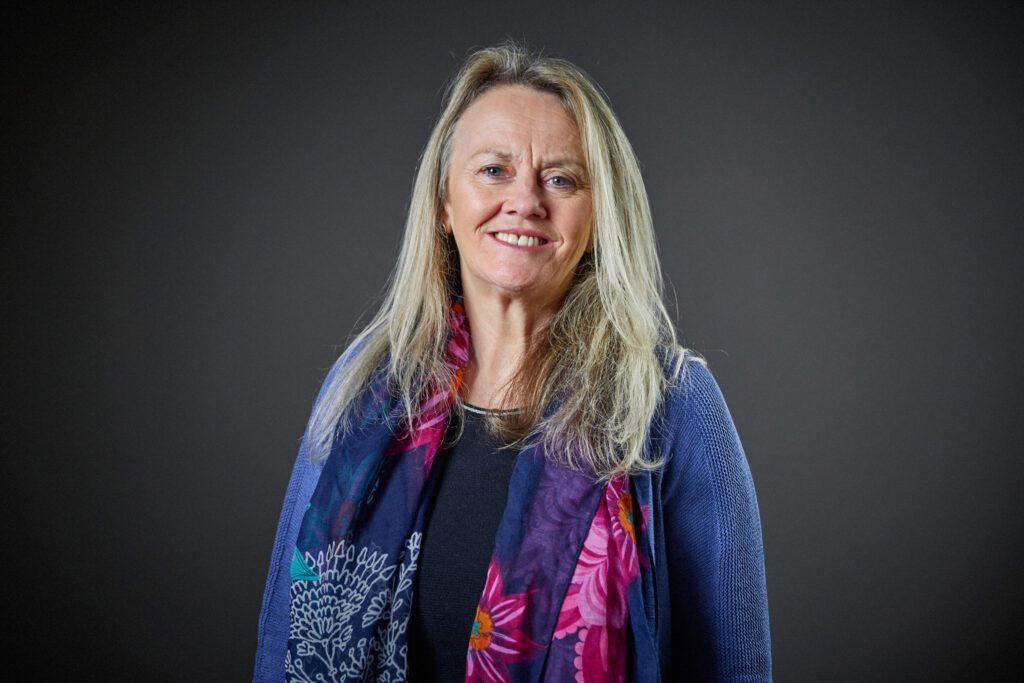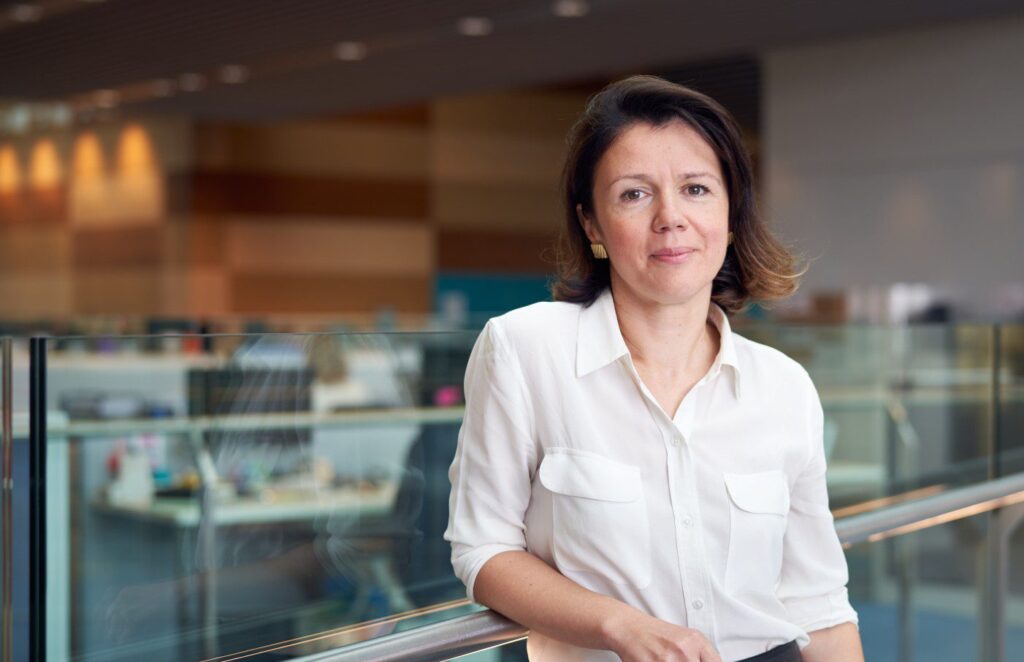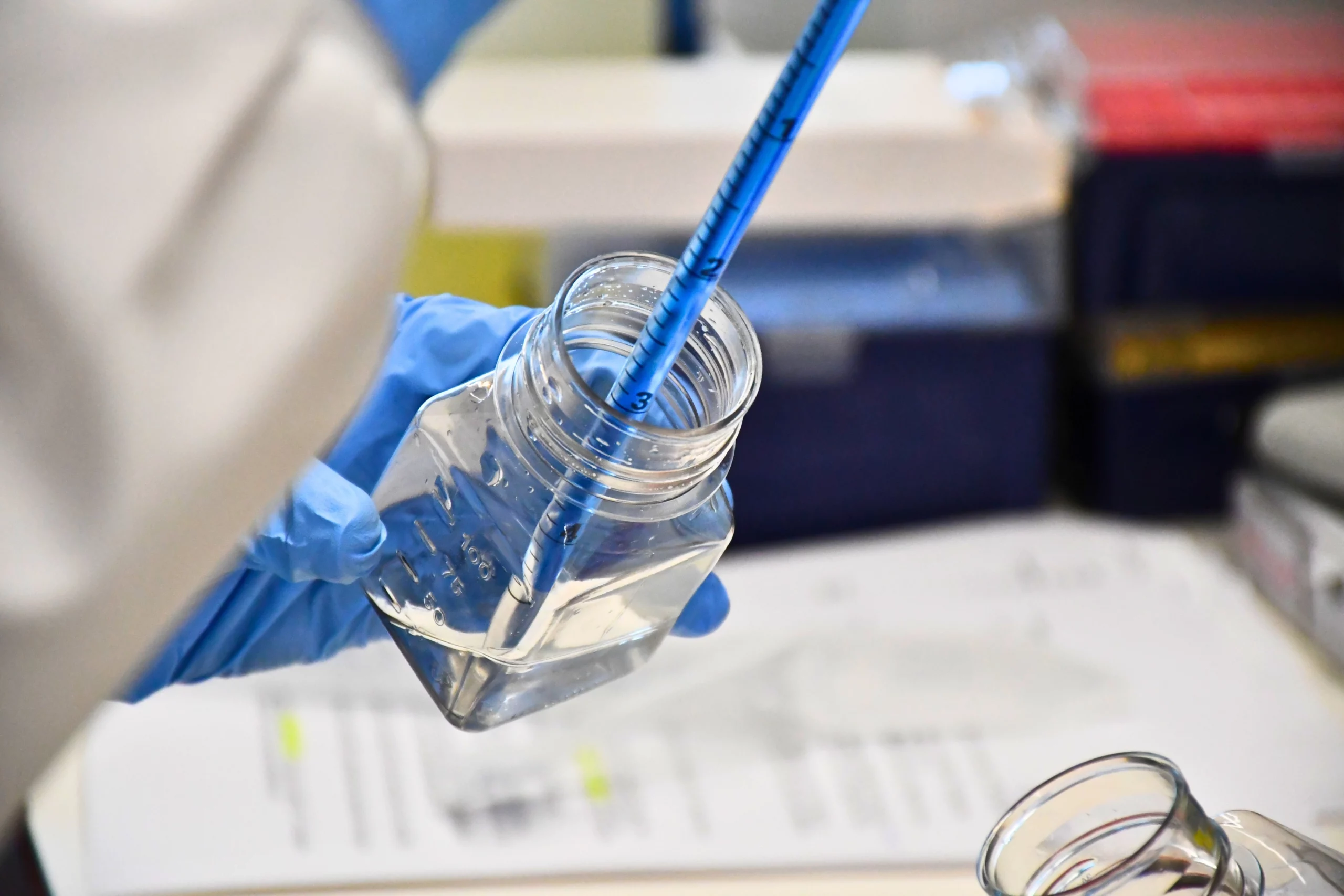Cancer Researchers from Manchester attend EACR Congress in Lisbon
The 2025 Annual Congress of the European Association for Cancer Research (EACR 2025) is a four day meeting which has been running since 1968. It is dedicated to basic, preclinical and translational cancer research across a wide breadth of topics, bringing together the global scientific community to advance cancer research, this year in Lisbon from the 16-19 June 2025.
Cancer Research UK Manchester Institute and National Biomarker Centre researchers and students often attend this event, which gives them insight into the latest research – including translational and clinical work – and acts as a fantastic opportunity for networking across the cancer research community. Attendees often return with new ideas for experiments, projects and collaborations, and the associated training and career development sessions allow them to build their knowledge and connections.
This year, Luisa Ferreira, a postdoctoral researcher in our Systems Oncology research group, was one of five EACR Congress Correspondents, who shared real-time highlights from the conference. Luisa did a fantastic job of capturing proceedings live on Bluesky and LinkedIn, so we asked her to share some of her thoughts on the conference – and on any familiar Manchester faces she spotted while reporting.
EACR 2025 – Reflections from Luisa Ferreria
From June 15th to 19th, the conference kicked off with a full day dedicated to Early Career Researchers (ECRs), setting the stage for an energizing week of cutting-edge science. What followed was a packed program of science and technology symposia, keynote lectures, and poster sessions featuring over 500 posters.
All the abstracts from the conference, including posters, can be found in a special edition of Molecular Oncology.
It was a fantastic opportunity to dive into the latest challenges and innovations in cancer research
Luisa Ferreria
Postdoctoral Researcher, Systems Oncology
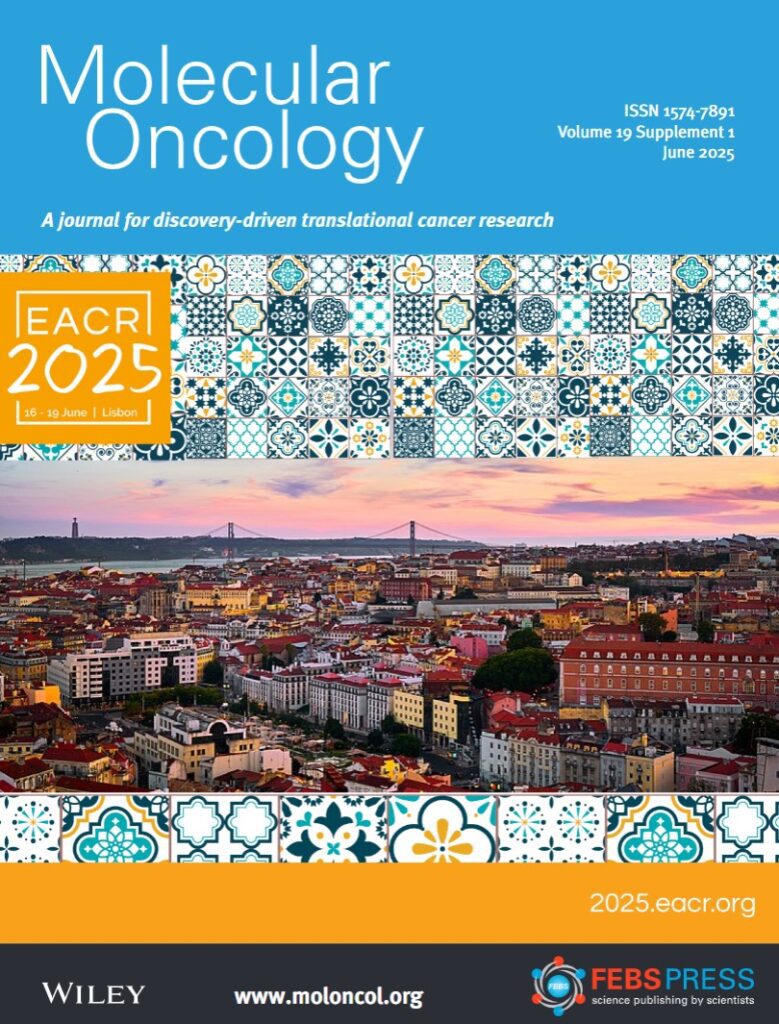
It was a fantastic opportunity to dive into the latest challenges and innovations in cancer research, spark meaningful scientific discussions, and connect with potential collaborators, career opportunities, and a vibrant research network.
The CRUK Manchester Institute and wider cancer research community in Manchester was proudly represented by a team of talented scientists who showcased their exciting work throughout the week, some of whom I managed to capture photographs of presenting their work at the conference.
Here is Maria Koufaki, PhD student in the Cancer Inflammation and Immunity group, showcasing new mouse models to define the function of CCR7+ dendritic cells in anti-tumour immunity.
Maria recently presented this work in her pre-viva seminar at the Institute, and successfully defended her thesis in the subsequent viva, passing with no corrections.
Abstract: Conventional dendritic cells (cDCs) constitute crucial orchestrators of adaptive immune response against tumours. Recent single-cell transcriptional analyses have unraveled an activation state of tumour-infiltrating cDCs (referred to herein as actDCs a.k.a. CCR7+ DCs, mregDCs, or cDC3s) derived from both cDC1 or cDC2 subsets. Their transcriptional profile suggests putative opposing T cell-stimulating or inhibitory roles, and due to their intratumoural scarcity and lack of experimental tools, the actual contribution of actDCs to tumour immunity remains unknown.
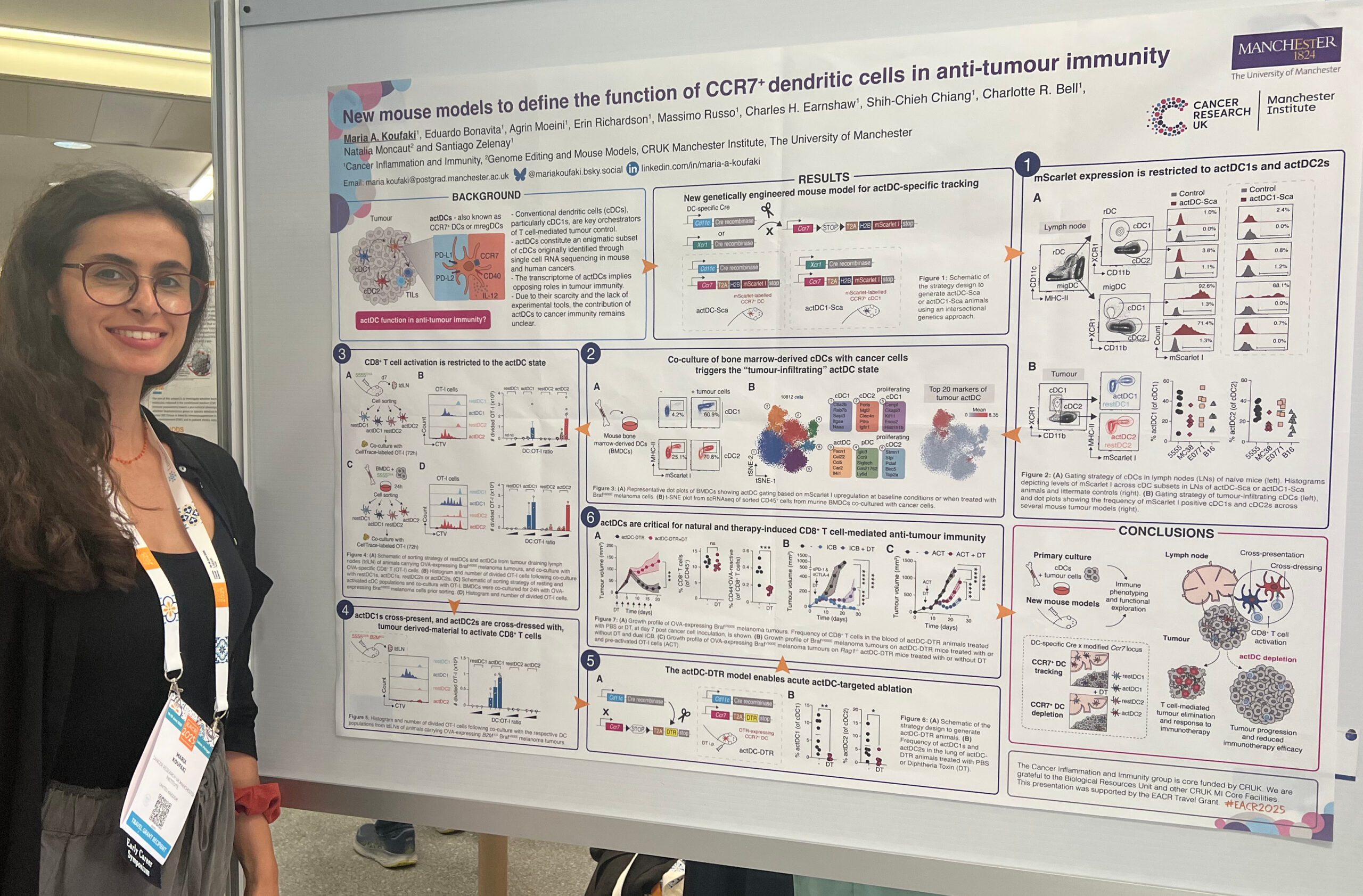
Here is Ana Vitlic, Research Associate at The University of Manchester and part of the Division of Cancer Sciences, presenting her poster on how age-related effects in cancer therapy are driven by local and systemic changes in the immune response.
Abstract: There is a strong bidirectional relationship between ageing and cancer. Ageing of the immune system, immunosenescence, is characterised by immune dysfunction. This compromises immune-surveillance and is associated with an increased development of malignant tumours. Therapies that can directly activate anti-cancer immunity, such as radio-and immunotherapy, may also be affected by age-related changes in the immune system which may limit their efficacy. Therefore, it is important that cancer therapies are understood through the lens of ageing, by using aged mouse models in preclinical cancer research.
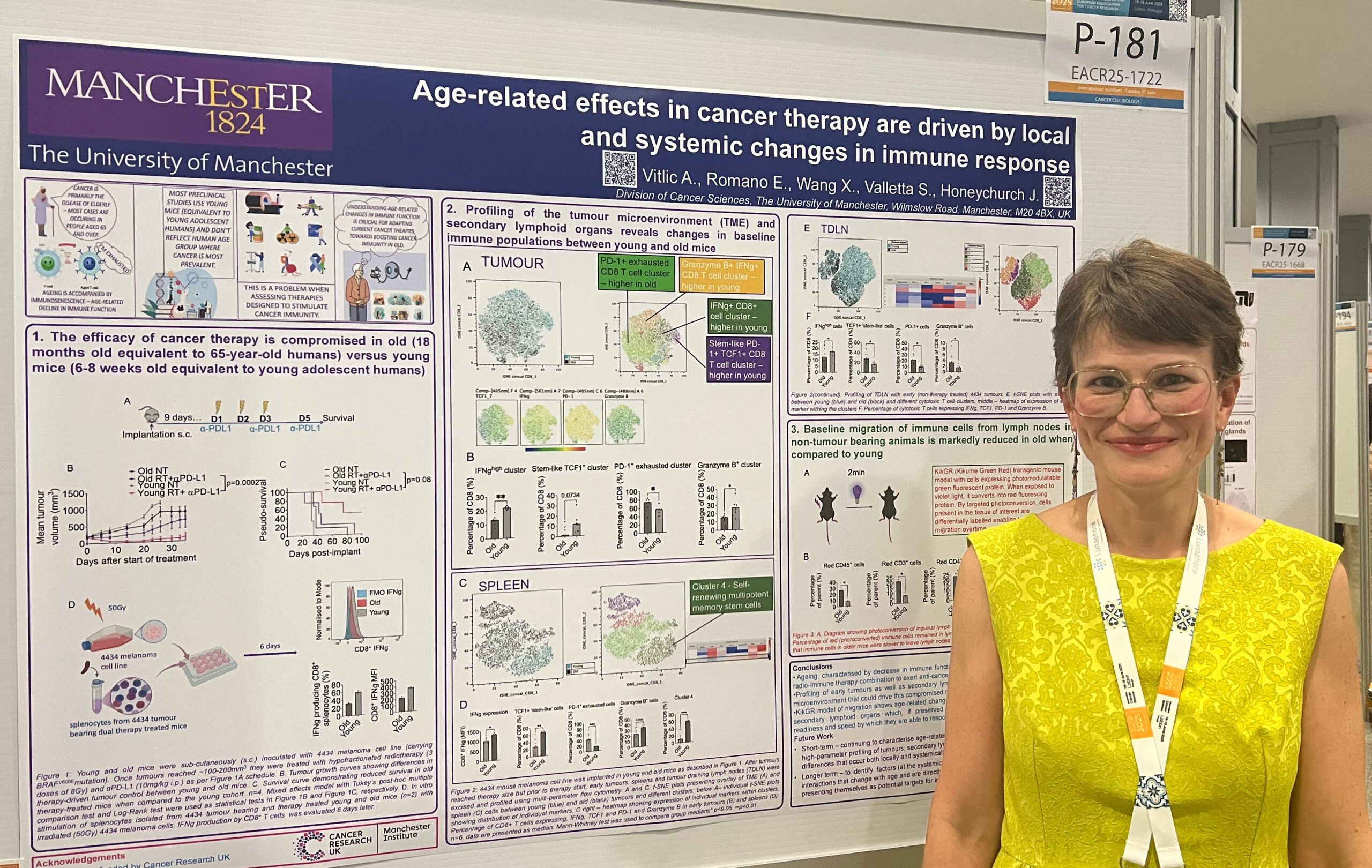
Here is Massimo Russo, a fellow postdoc in Systems Oncology, in the spotlight presenting work on the impact of cancer cell intrinsic COX-2 activity and PEF2 production in the immune response to metastasis.
Abstract: Metastasis, the leading cause of cancer-related deaths, remains a significant clinical challenge due to the lack of effective therapies. A critical question that remains unanswered is why some tumours evade immune control and metastasise, while others do not. Our previous work demonstrated that COX-2/PGE2 activity in cancer cells promotes progressive tumour growth through immune escape in preclinical models of primary tumours. Building on this, we explored the role of this inflammatory pathway in regulating the immune response to metastasis.
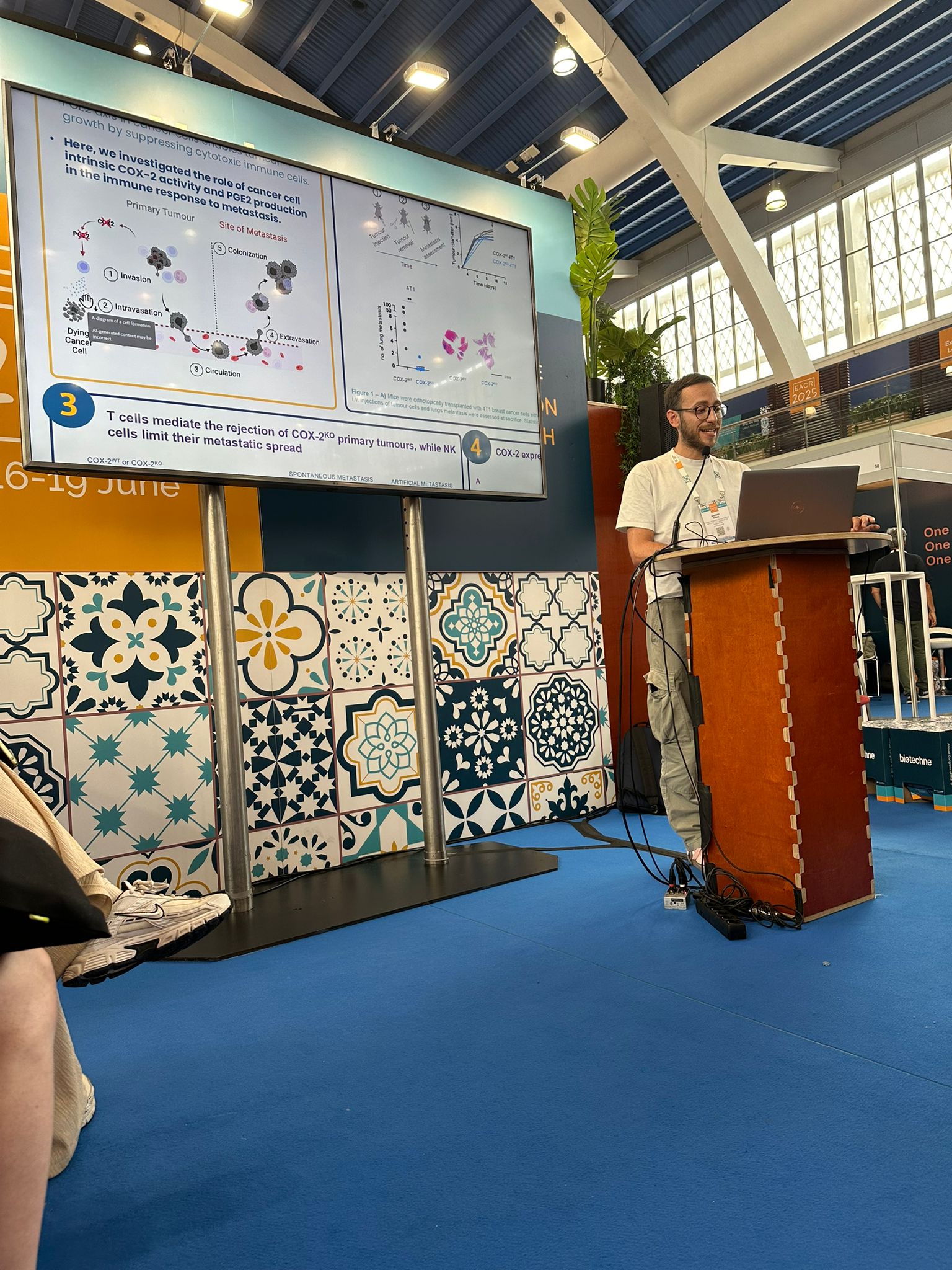
And another colleague in Systems Oncology, Nasir Haider, is seen here presenting his poster showing the potential of interactomics to map the role of the pancreatic tumour microenvironment on rewiring mutant KRAS signalling.
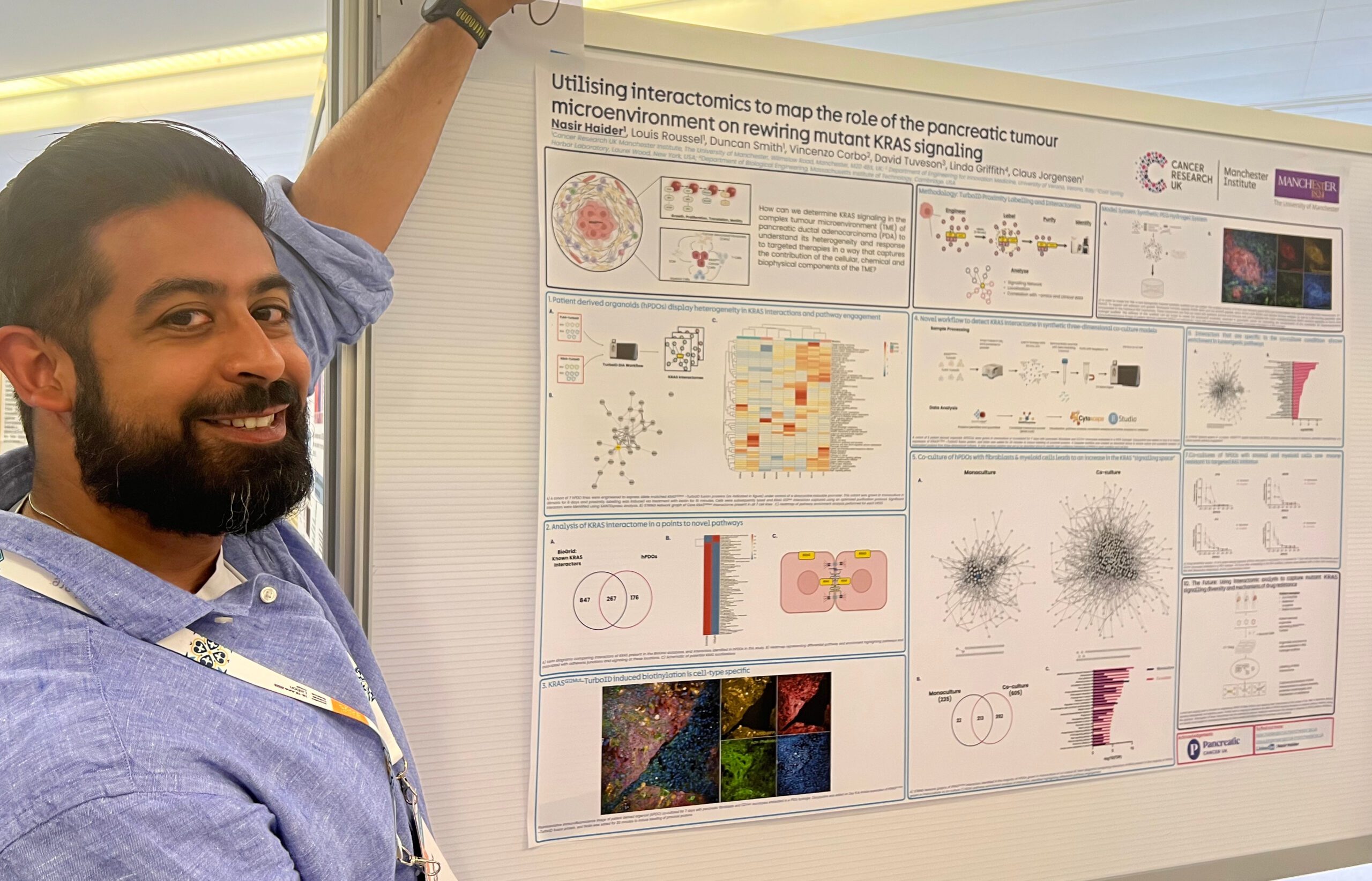
Prof Tim Somervaille presenting at EACR
Also presenting at EACR this year was Prof Tim Somervaille, who is a Clinician Scientist and Senior Group Leader of the Leukaemia Biology Laboratory, who presented work on targeting EP300/CBP in haematological malignancies – an exciting project which is already in clinical trials.
You can read about the trials – and the benefits patients are already receiving – in this blog: https://www.christie.nhs.uk/about-us/news-at-the-christie/latest-news-stories/clinical-trial-gives-terminal-cancer-patient-new-lease-of-life
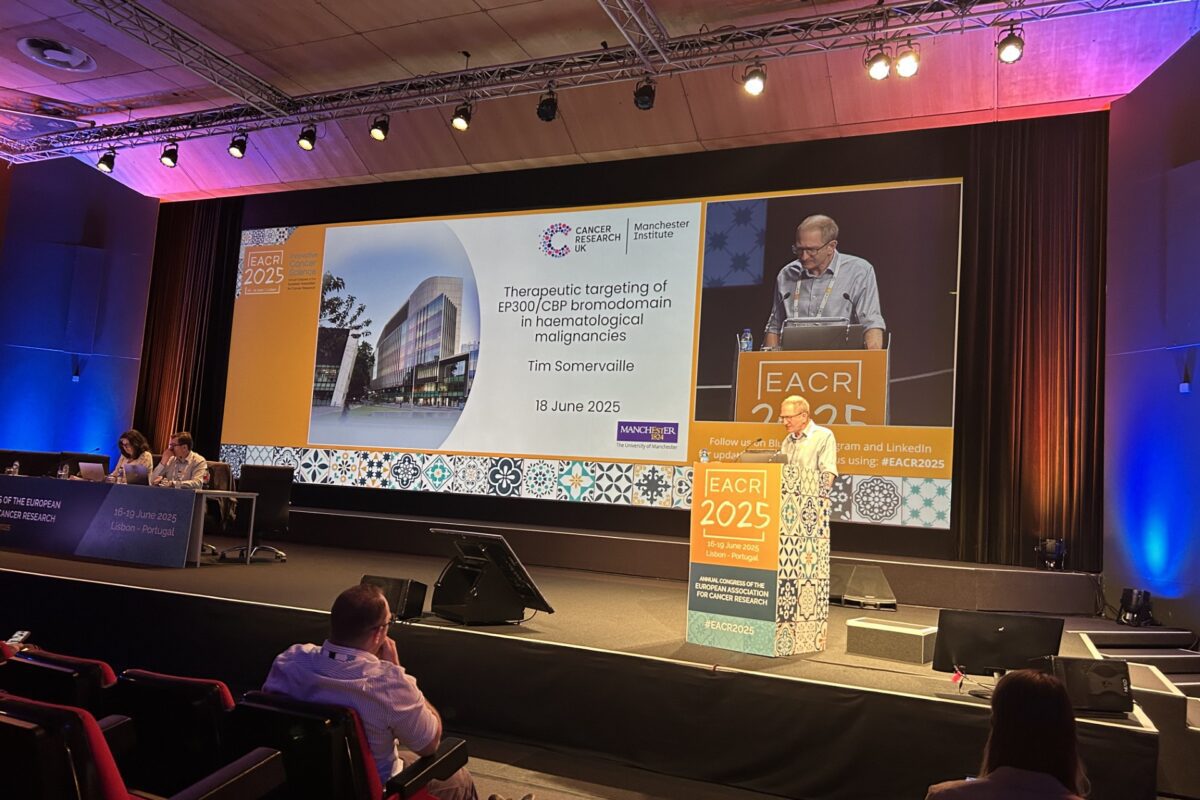
Other Cancer Research UK Manchester Institute presenters
Charlotte Russell from our Skin Cancer and Ageing group presented on “Age-specific factors determine brain metastasis growth and immunotherapy response”, while former lab member Dr Tim Budden (now a Lecturer in the Department of Molecular and Clinical Cancer Medicine at the University of Liverpool) presented on “Tissue-specific fibroblast lipids drive epithelial cancer invasion”
Also from the Cancer Inflammation and Immunity Group was Dr Charles Earnshaw, with presentation on how “Glucocorticoids trigger CD8+ T cell dependent tumour control”
Jingru Xu, PhD Student in Stem Cell Biology, presented on “IRF2BP2/TRIM28/DNMT1 suppresses transposable elements to maintain AML”
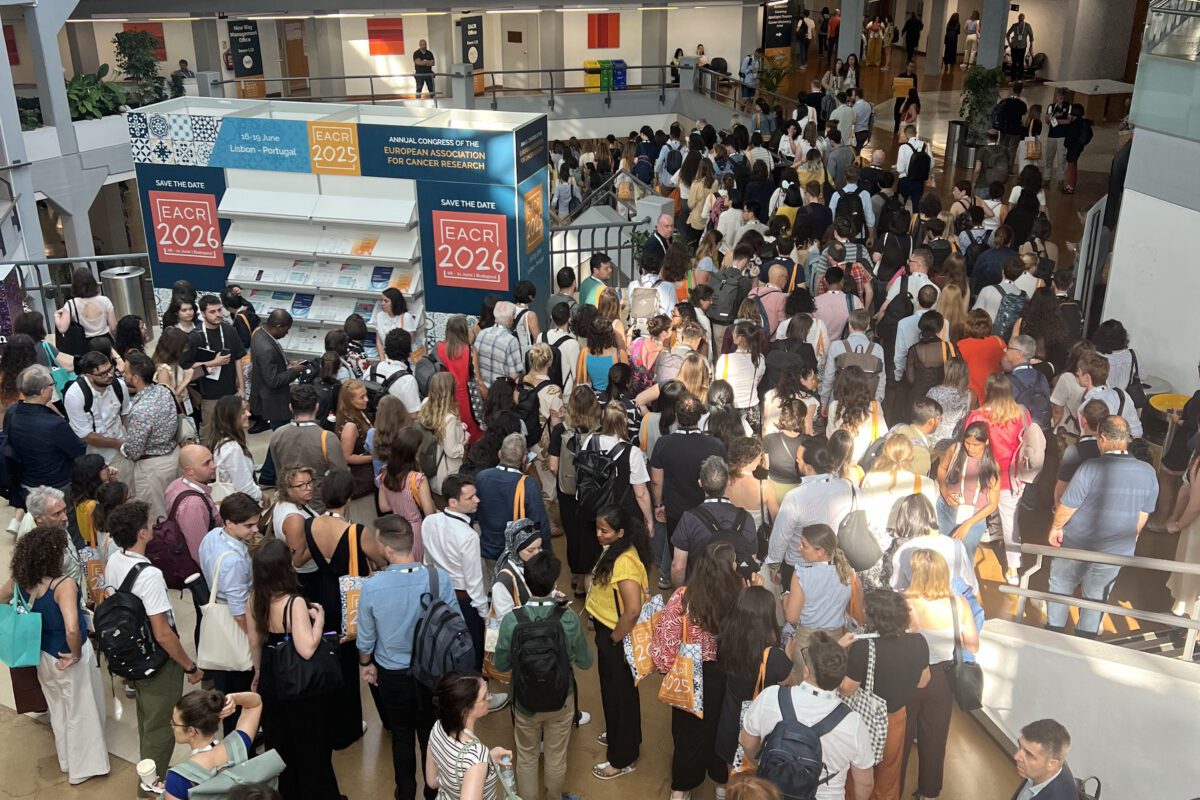
We asked Luisa what stood out for her from her time at EACR. She told us:
Among the highlights, both our former and current Cancer Research UK Manchester Institute Directors – our outgoing Interim Director Professor Caroline Dive and our newly appointed Director Professor Samra Turajlic, respectively, took the stage — not only to present their groundbreaking research in cancer but also to serve as inspiring role models, particularly for early-career scientists and women in science.
Prof Dive took part in the Women in Leadership Workshop, and was also part of the EACR Board, playing an important role in planning this years event.
You can read more of the highlights from EACR in their magazine review, reflecting on cutting-edge science & inspiring discussions – https://magazine.eacr.org/eacr-2025-annual-congress-in-review-cutting-edge-science-inspiring-discussions/
